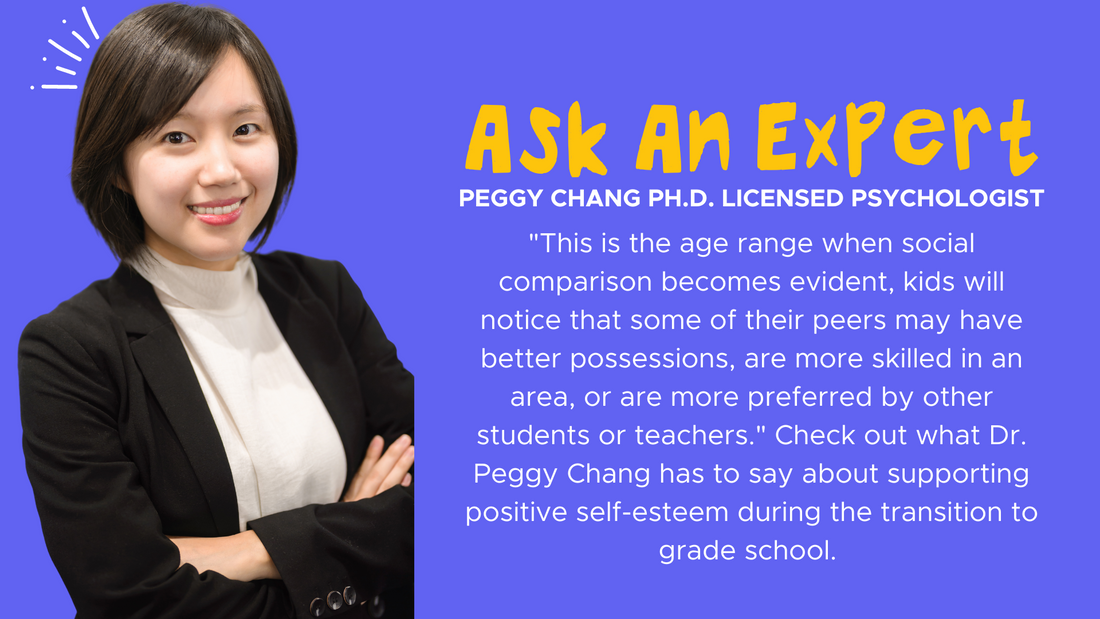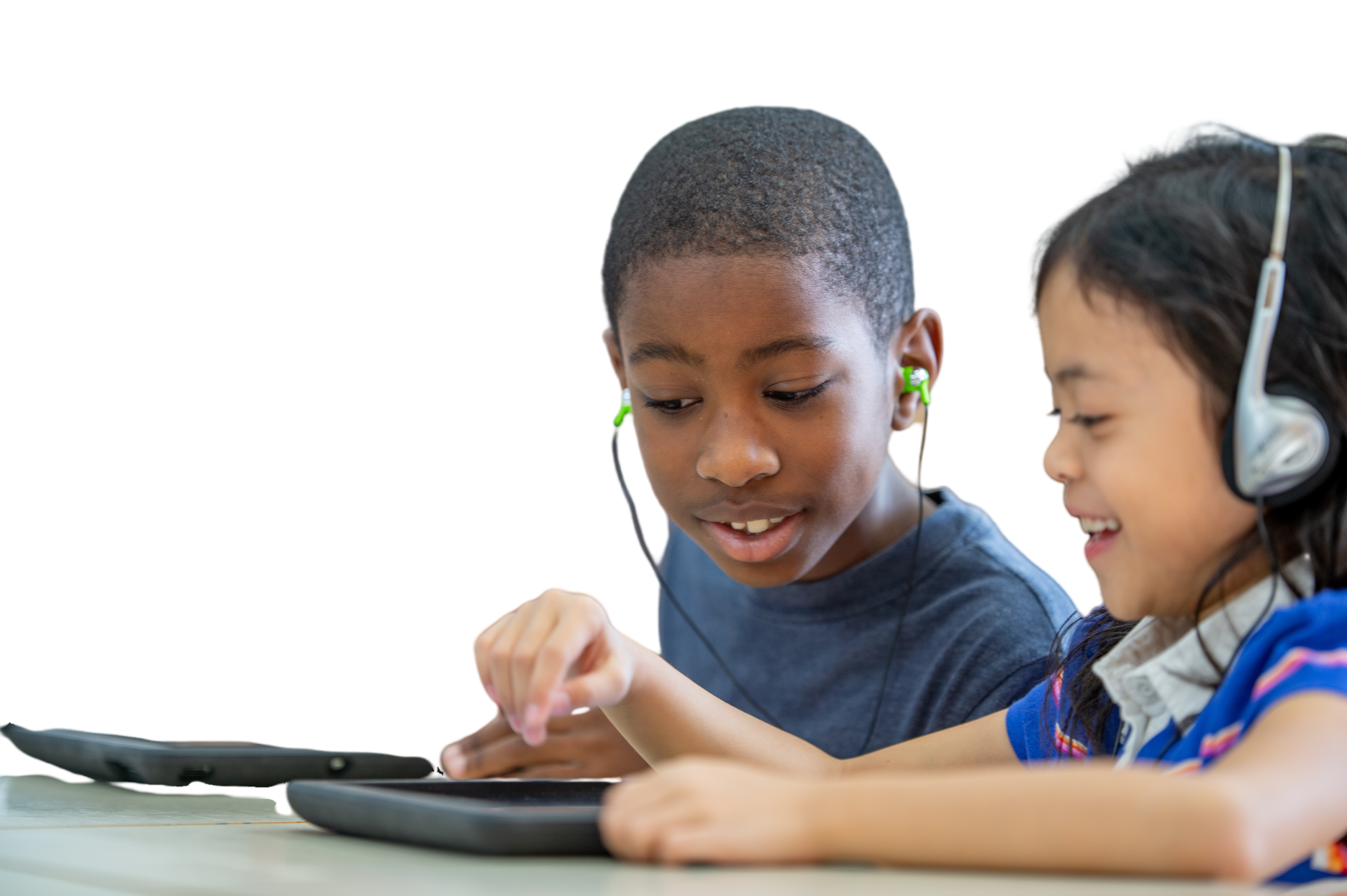
Supporting Positive Self-Esteem during Transition to Grade School- A Q&A with Expert
Diana PhuongSupporting Positive Self-Esteem during Transition to Grade School- A Q&A with Expert
 We had the privilege of sitting down with Dr. Peggy Chang, a licensed psychologist, to get the inside scoop.
We had the privilege of sitting down with Dr. Peggy Chang, a licensed psychologist, to get the inside scoop.
Q: Why do some kids become more anxious, short-tempered, and begin to make statements relating to school avoidance when they first entered grade school?
A: Around age 5, children start to look at themselves in a different way. Their emotions become more complex and can better pick up what’s happening in their surroundings.
- This experience is in fact quite normal, and there are many things parents can do to support their child at this development stage and further foster the growth of their positive self-concept and self-esteem.
Q: What are some factors that may impact my child’s self-esteem?
A: This is the age range when social comparison becomes evident, kids will notice that some of their peers may have better possessions, are more skilled in an area, or are more preferred by other students or teachers.
When they feel like they don’t measure up, it can lead to them feeling like they are less than and thus experience lower self-esteem.
Q: How do these factors differ depending on gender?
A: Girls are known to value relationships more and thus having more friends is likely to lead to higher self-esteem. Whereas boys value more on physical attributes and are more likely to have higher self-esteem when they perceive their greater strength and skills.
Q: What can parents do to support children’s positive development of self-esteem?
A: Here are some tips:
1. Praise effort:
- Focus on the child’s effort when giving praise. For instance, tell children, “I can see you’ve been practicing hard in perfecting your dribbling!”, and avoid praises that focus on fixed, innate quality, such as “you are very talented!”.
2. Normalize mistakes:
- Mistakes are bound to happen. Normalization of mistakes teaches children not to be fearful of them. Mistakes should also be used as teaching opportunities to help children learn and improve for the future.
3. Growth mindset:
- Encouragement of a growth mindset is essential in building resilience and reducing frustration tolerance. When children approach tasks with a growth mindset, they are more likely to persevere, develop grit, and finally accomplish tasks. This in turn helps them feel more confident in their ability.
4. Build on a child's strengths:
- Highlight children’s past successes and positive experiences is another great way to help them internalize their confidence.
Q: Is it normal for kids to struggle to make friends when they first enter school?
A: Yes, it is completely normal! While entering a new environment, it's common for many to face difficulties while making friends. As a parent, it may be extremely worrisome to see your child struggle socially at first. However, just know that it is a difficulty that they can work to overcome.
Here are some tips you can use to help them build better social skills:
1. Model positive social interactions/behaviors
- Kids tend to learn by observing their parents as well as those around them. Thus your interactions with people, whether big or small, serve as learning opportunities for them.
- What would this look like?
- Treat others with good manners and respect
- Demonstrate appropriate emotion regulation (it’s okay to let your kids know that you too experience anger, sadness, and most importantly, how you manage them!).
- This also leads to how to positively resolve conflicts and advocate for self when one runs into social difficulties. Conflicts will almost always occur when children interact with peers. It is important that children learn ways to problem solve, and stand up for self when situations call for it.
- Show care and empathy when interacting with others. This teaches children to be kind and it instills the essential skills of perspective-taking.
2. Practice role-playing at home
- Through role-playing, the child can practice how to interact with others, which allows them to feel more confident in their skills. With this boost in confidence, it helps kids to step out of their comfort zone and initiate interactions with others.
- For peer relations, some keys to success are reciprocity and mindful perspective-taking skills. Parents can help by modeling pro-social skills and help children develop greater empathy." The consistent practice and live modeling are some great ways to build the foundation for future social competence.





 Most Popular
Most Popular
